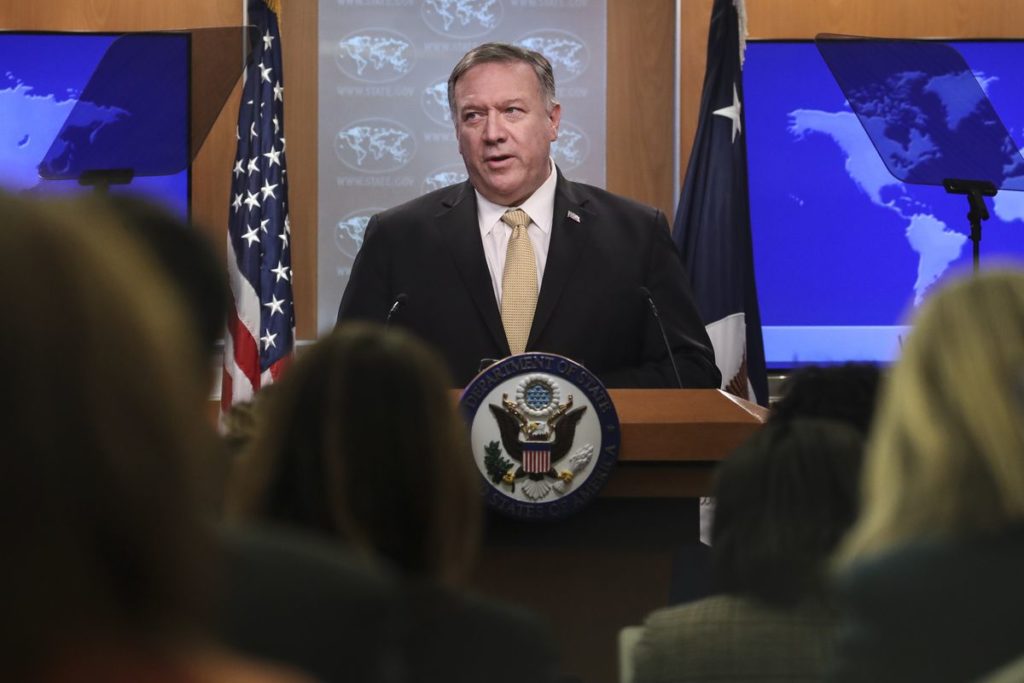Australia/Israel Review
Media Microscope: Mike drops
Dec 22, 2019 | Allon Lee

Coverage of US Secretary of State Mike Pompeo’s announcement that the Trump Administration does not consider Israeli civilian settlements on the West Bank as “per se inconsistent with international law” was a mix of the good, the bad and the ugly.
Age and Sydney Morning Herald readers (Nov. 20) benefitted from Isabel Kershner’s report which said, “Israel argues that a Jewish presence has existed on the West Bank for thousands of years and was recognised by the League of Nations in 1922. Jordan’s rule over the territory, from 1948 to 1967, was never recognised by most of the world, so Israel also argues there was no legal sovereign power in the area and therefore the prohibition on transferring people from one state to the occupied territory of another does not apply… most blueprints for a peace agreement envisage a land swap – Israel retains the main settlement blocs, where a majority of the settlers live, and hands over other territory to the Palestinians.”
An AP “analysis” in the Australian (Nov. 20), stated that “while Jewish settlers can freely enter Israel and vote in Israeli elections, West Bank Palestinians are subject to Israeli military law, require permits to enter Israel and do not have the right to vote in Israeli elections.”
Maybe that’s because since 1994 more than 90% of Palestinians in the West Bank live in the Palestinian Authority, essentially a de facto Palestinian state running their own affairs, totally separate from the State of Israel and voting in Palestinian elections (when their leaders bother to hold them).
An Economist editorial reprinted in the Australian (Nov. 21) also ignored the everyday reality in the West Bank, saying “annexation of the West Bank would present its own set of problems. If the Palestinians are made Israeli citizens, they will soon come to outnumber the country’s Jewish population. If they are not given the same rights, Israel would resemble an apartheid state.” That’s moot since it assumes the 1.9 million Palestinians in Gaza – which has been totally free from Israeli rule since 2005 – would be annexed too.
The Canberra Times (Nov. 20) report included Pompeo citing US President Ronald Reagan’s view that civilian settlements aren’t inherently illegal.
SBS TV “World News” reporter Rena Sarumpaet’s balanced story (Nov. 19) noted that US Administrations “have taken differing positions,” and included Pompeo citing President Reagan’s position and saying the move does not prejudge the West Bank’s status.
On ABC Radio “AM” (Nov. 19), North America correspondent James Glenday also explained the diversity of positions adopted by US administrations. He noted Pompeo had contextualised the announcement as a reaction to then-President Obama’s refusal in 2016 to veto controversial UN Security Council Resolution 2334 and that Pompeo had stated “the overall status of the West Bank is for Israel and the Palestinians to negotiate but as a matter of law, after a judicial review, he doesn’t think the settlements are illegal.”
In a cross to the studio on ABC TV “The World” (Nov. 19), Middle East correspondent Eric Tlozek incorrectly claimed that Trump moved the US embassy to Jerusalem “in defiance of a UN Security Council decision” – it was a General Assembly resolution. Tlozek insisted settlements are “illegal under international law and remain…illegal under international law, despite whatever the US says.” He is apparently such a distinguished expert in international law that he didn’t feel the need to cite a source or any contrary views, or to report Pompeo’s qualifying remarks.
On ABC TV “Q&A” (Nov. 25), visiting far-left Israeli politician Tamar Zandberg had generous airtime to criticise Pompeo and say settlements are “one of the main reasons” why there is no peace agreement. Fellow panellist, Australian foreign editor Greg Sheridan, tried to provide nuance – discussing the settlements’ legal status and that settlement blocs would remain part of Israel under any peace deal, but host Tony Jones cut him off.
In the Canberra Times (Nov. 30), columnist Crispin Hull said Palestinians should stop supporting the two-state formula for peace because it “has only ever been a cruel hoax and delaying tactic.”
The Dec. 9 Canberra Times ran a response to Hull from AIJAC’s Allon Lee which quoted Palestinian chief negotiator Saeb Erekat’s admission that, in 2008, then Israeli PM Ehud Olmert offered to create a Palestinian state on land equivalent to 100% of the West Bank, and Palestinian President Mahmoud Abbas’s acknowledgement that he rejected the offer “out of hand”.
Tags: Australia, Israel, Media/ Academia






